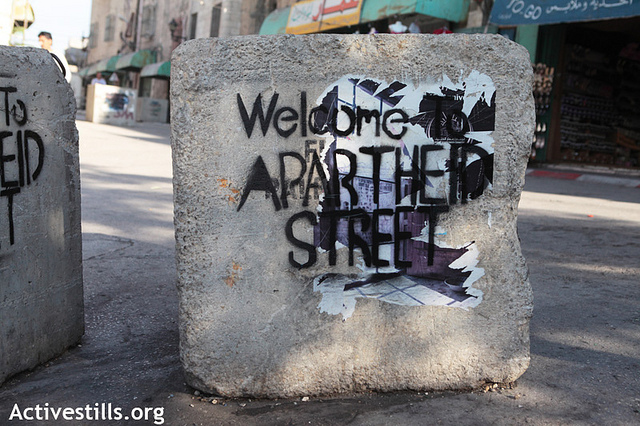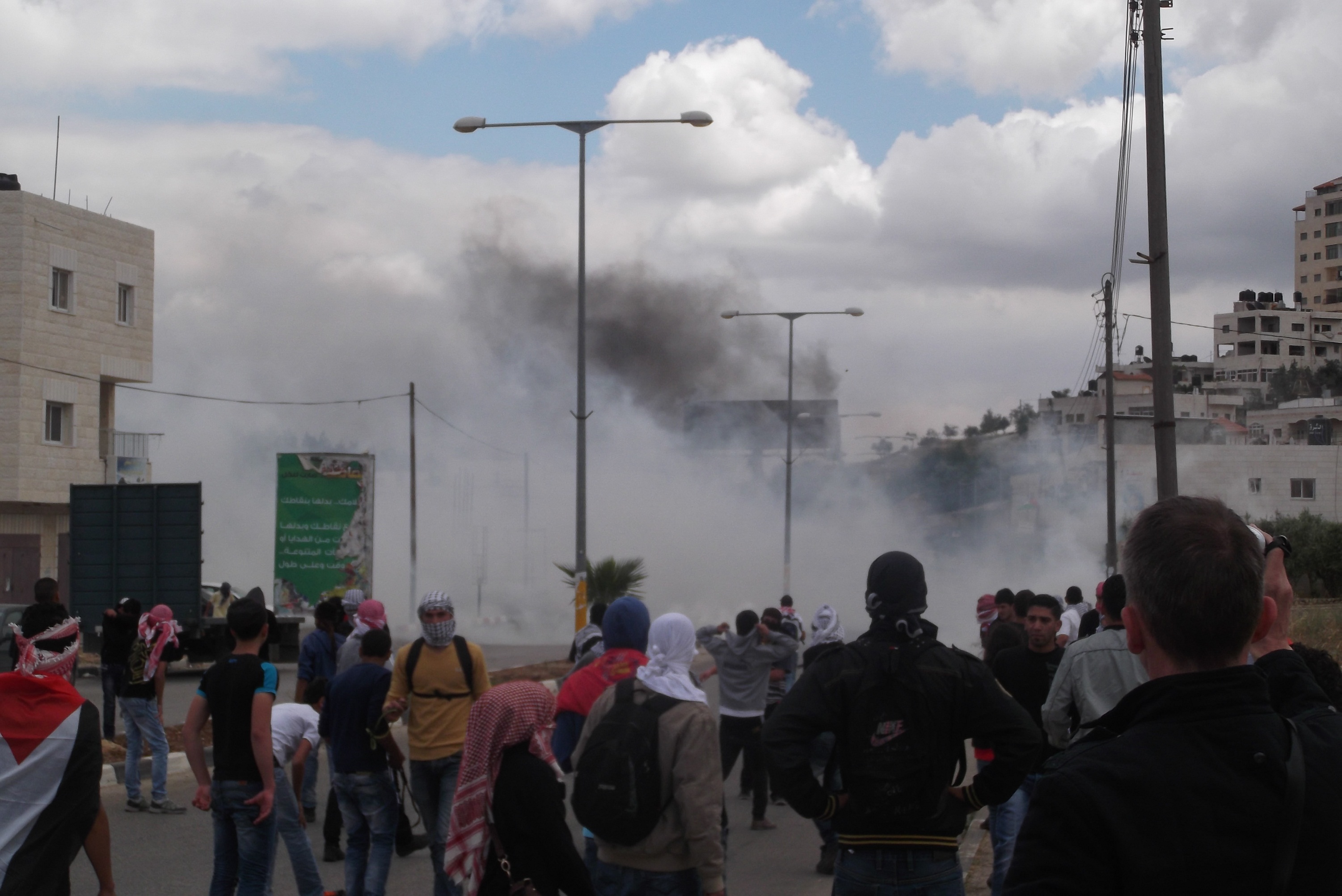Tag: Ofer military prison
-
The wave of night time invasions and arrests by the Israeli military continues in the village of Ni’lin
11th June 2013 | Ni’lin Sons | Ni’lin, Occupied Palestine A wave of night time invasions and arrests by the Israeli military continues in the village of Ni’lin. At 3am on the 10th of June Ahmad Daood, 26 years old, was arrested in his home. Six military jeeps and more than thirty soldiers invaded the village…
-
Jamila Shalaldeh, accused of assaulting 13 soldiers found innocent by Ofer Military Court
23th May 2013 | International Solidarity Movement, Team Khalil, Hebron, Occupied Palestine On Tuesday 21st May, Jamila Shalaldeh was found innocent by Ofer Military Court of assaulting 13 soldiers. Jamila and her son Abdel were visibly nervous before her trial. Fortunately, the Israeli military judge agreed with Jamila and her family that the charges against…
-
Right of Return still key – Nakba Day demonstrations violently suppressed by Israeli forces
15th May 2013 | International Solidarity Movement | Ramallah, Occupied Palestine By Team Ramallah The 15th May marks the 65th anniversary of the expulsion of 750,000 Palestinians from their homes and the destruction – and massacre in some cases – of more than 500 Palestinian villages by Zionist forces in 1948. 65 years on, the…


